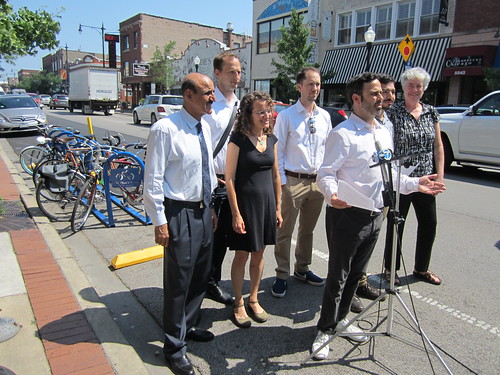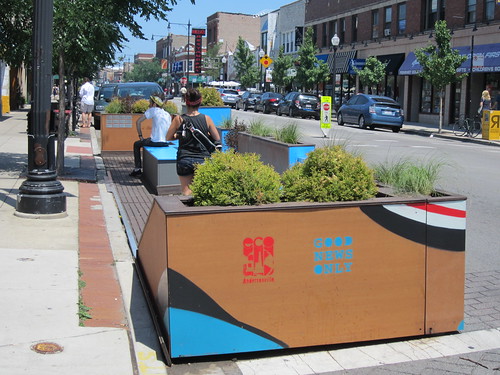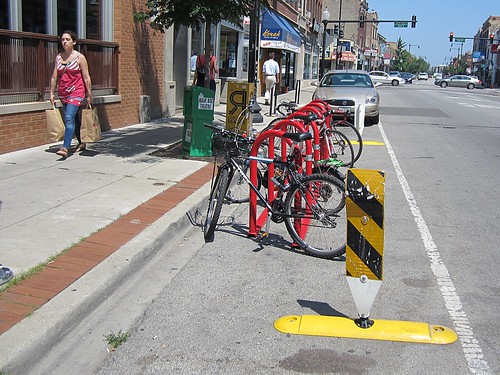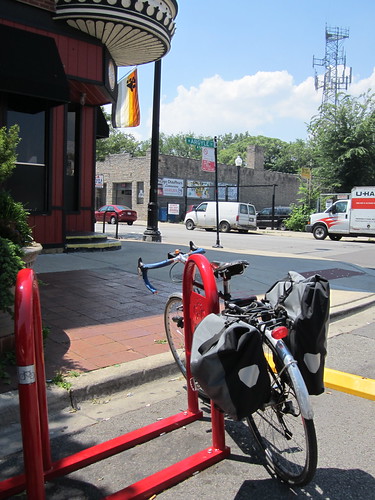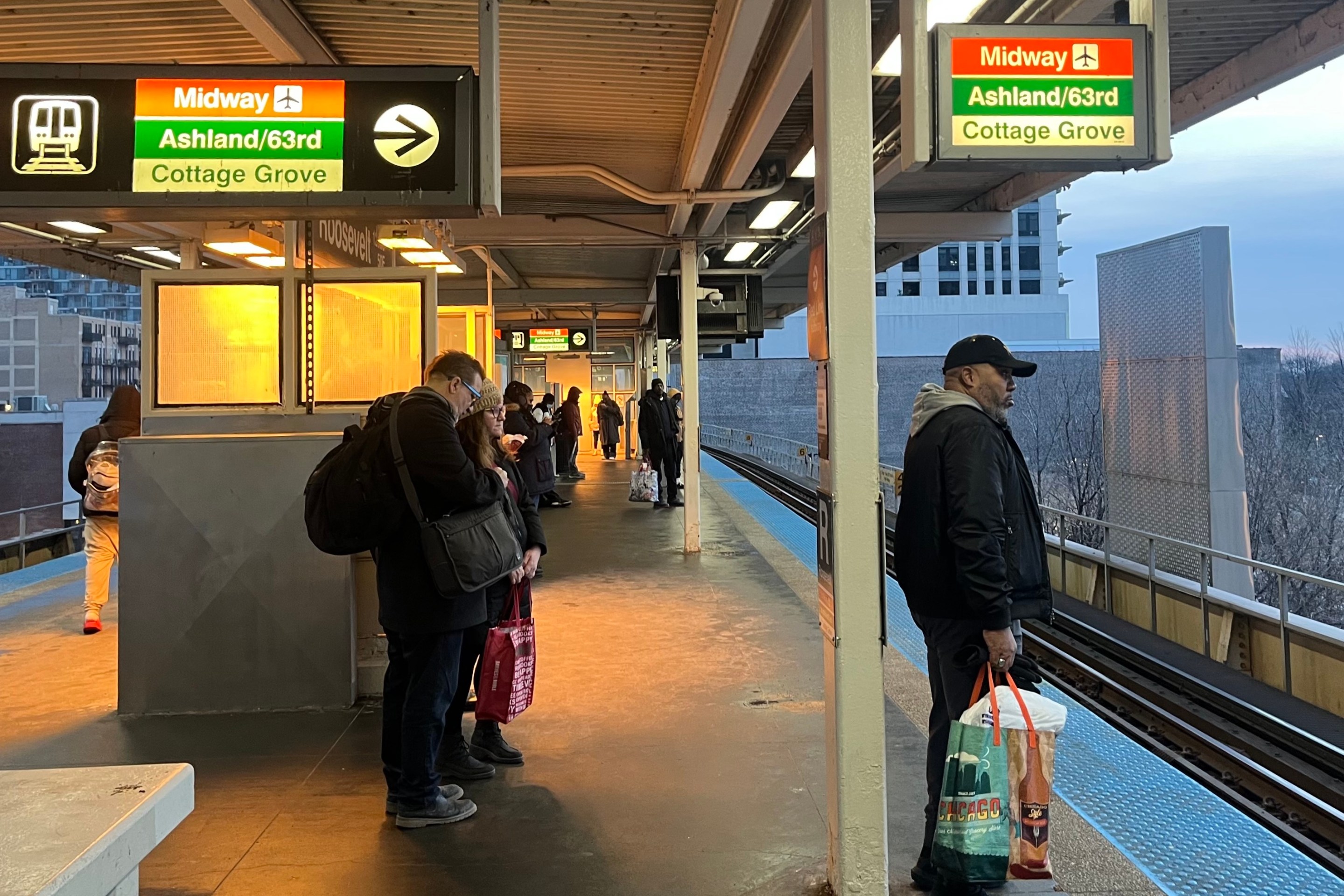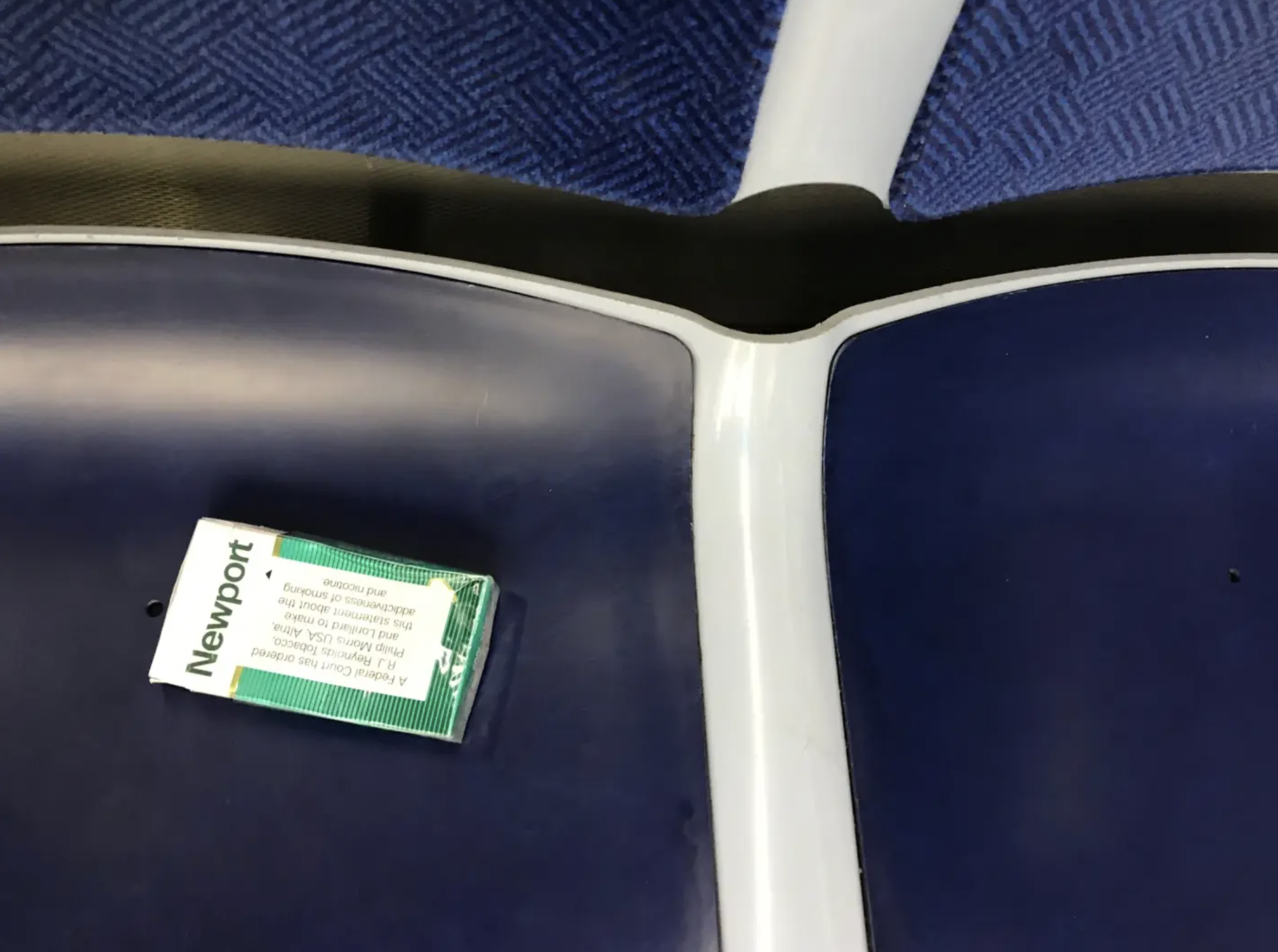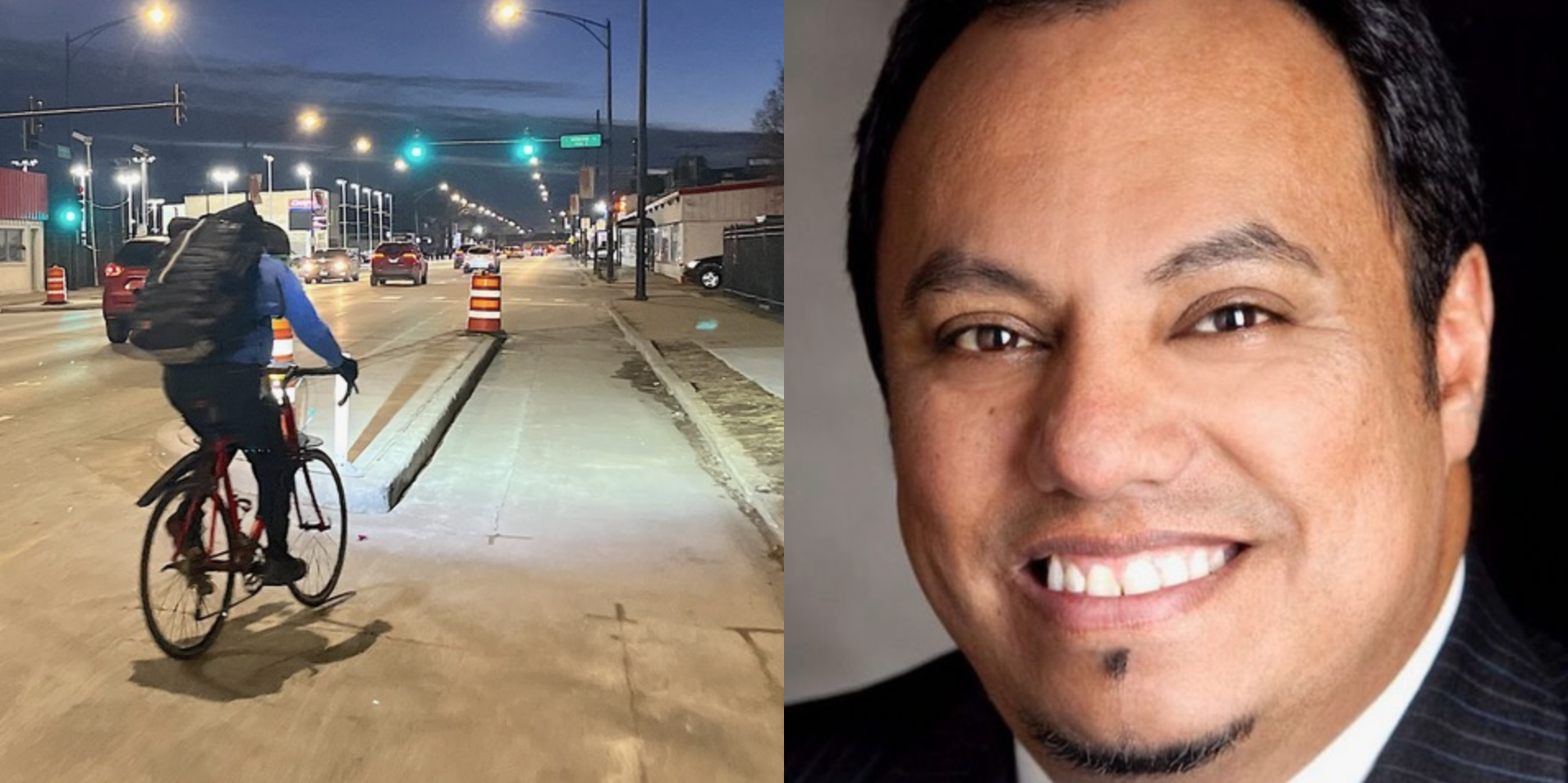It was a sign of the times when the Chicago Department of Transportation celebrated the city’s 13th on-street bike parking corral this morning at the Cheetah Gym, 5248 North Clark in Andersonville. Nine years ago, when I worked as CDOT’s bike parking manager, I put plenty of blood, sweat and tears into trying to get a corral installed at this very same location. The gym’s owner was ready to bankroll it, and we had the blessing of the local chamber of commerce and alderman, but the CDOT higher-ups deep-sixed the plan, questioning the safety of placing racks in the street, although corrals were already common on the West Coast by then.
CDOT’s recent announcement that it plans to reach 25 corrals, which usually involve converting car-parking spots to bike spaces, by the end of the summer is further evidence of the department’s new attitude of prioritizing sustainable transportation. On-street racks are slated for locations ranging from the Medici restaurant, 1327 East 57th in Hyde Park, to Simone’s tavern, 960 West 18th in Pilsen, to the Six Corners Chamber of Commerce, 4710 West Irving Park in Portage Park, to four FLATS Chicago apartment buildings in Rogers Park.
The Cheetah Gym rack is one of six Andersonville corrals, which, along with an existing “People Spot” parking-to-park conversion at 5226 North Clark and another parklet slated for the Coffee Studio, 5628 North Clark, cement the neighborhood’s reputation as Chicago’s leader in public space initiatives.
Chicago, which had only four bike parking corrals before this spring, had been lagging far behind other cities like New York (with 12 corrals), San Francisco (32) and Portland, Oregon (97), and funding seemed to be the major obstacle. Those municipalities provide the racks and installation at no cost to businesses. However, CDOT requires merchants and community organizations to cover the roughly $3,300 for the rack, installation, shipping, permits and delineator posts, plus $75 for an annual public way permit and $800 for winter removal and spring reinstallation.
However, it appears that red tape, rather than cost, was the main stumbling block. Shortly after Josh Deth, owner of Revolution Brewing, 2323 North Milwaukee, kvetched to me about the ridiculous number of bureaucratic hoops he had to jump through to install a corral in front of his brewpub last May, CDOT streamlined the process.
“It was just a lot to ask of a chamber of commerce or a business to produce all these documents that the Department of Law needed in order to put together a use agreement,” current Bike Parking Manager Tony Giron acknowledged. “They needed to get an economic disclosure statement notarized and proof of insurance, naming the city of Chicago as an additional insurer, as well as providing proof of insurance for the contractor who was putting it in.”
Instead of businesses procuring and installing their own hardware for the corrals, CDOT has gone ahead and ordered dozens of red, ten-bike racks from Saris, a manufacturer based in Madison, Wisconsin. The fixtures are currently sitting in the yard of Chicago’s Fence Masters, the contractor that installs the city’s sidewalk bike racks. “Businesses are more comfortable with just signing a check and a maintenance agreement,” Giron said. “This makes it a much faster process. On my end, I just put the corral on a work order, just like any other bike rack, and then I go out and supervise the installation.”
At the Cheetah ribbon cutting, Commissioner Gabe Klein focused on the economic benefits of the on-street bike racks. “As you can see behind me the corrals are packed,” he said. “As soon as you put them down they are full of bikes, and they’re being turned over constantly. One car parking space can hold 12 bikes. That’s 12 customers for local businesses.” He added that studies conducted in Toronto and San Francisco showed that while motorists may spend more per visit, bicyclists tend to patronize local merchants more often and spend more per month.
Klein also discussed the other benefits of the corrals, which keep bicycles out of the way of pedestrians, showcase cycling as a convenient travel mode, and advertise businesses as a being bike-friendly. “I was also talking to [Andersonville Chamber of Commerce Director] Ellen Shepard and I asked, ‘Since we’ve made these changes to the street, have you seen traffic changes?’ and she said, ‘Yes. Fewer cars, moving slower, more bikes and more pedestrians.’ And that’s exactly what we want to see.”
“We’re very grateful to have such a cool commissioner to help support our efforts in putting in elements like our People Spots and bike corrals,” Shepard said at the event. “In Andersonville we have built our neighborhood around locally owned, independent businesses and environmental sustainability, and having elements like our People Spots and bike corrals have really made this neighborhood blossom even more. It’s been so important to build Andersonville as we want it to be.”
Here's a full list of the bike corrals slated to be in place by the end of the summer:
- Revolution Brewing, 2323 N. Milwaukee Ave.
- Flat Iron Building, 1565 N. Milwaukee Ave.
- Café Jumping Bean, 1439 W. 18th St.
- Hopleaf, 5148 N. Clark St.
- Sofo Tap, 4923 N. Clark St.
- Make Way for People Spot Corral, 5226 N. Clark St.
- Cheetah Gym, 5248 N. Clark St.
- Coffee Studio, 1561 W. Olive Ave.
- Bikram Yoga, 5715 N. Clark St.
- Simone's, 960 W. 18th St.
- Metropolis, 1039 W. Granville Ave.
- Kitchen Sink, 1107 W. Berwyn Ave.
- Intuit Gallery, 756 N. Milwaukee Ave.
- Boiler Room, 2210 N. California Ave.
- Village Cyclery, 1337 N. Wells St.
- Medici, 1327 E. 57th St.
- Longman and Eagle, 2657 N. Kedzie Ave.
- Six Corners Chamber of Commerce, 4710 W. Irving Park Road
- Fleet Feet, 1620 N. Wells St.
- Lucky's Sandwiches, 1635 N. Milwaukee Ave.
- FLATS Chicago: 5411 N. Winthrop Ave.; 5718 N. Winthrop Ave.; 5051 N. Kenmore Ave.; and 1325 W. Wilson Ave.
